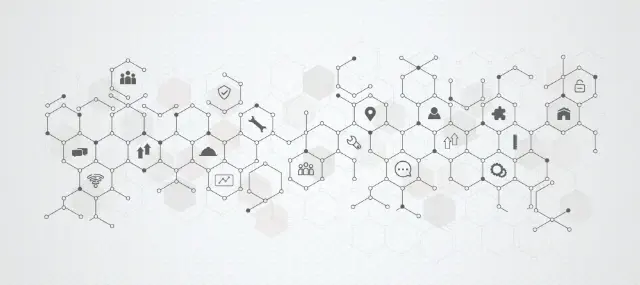Humanizing Customer Service Automation for the Retail Industry
Customer service is the backbone of any successful retail business. In today’s fast-paced, digital world, customers expect quick, efficient, and personalized service at every touchpoint. However, traditional customer service methods are often manual, time-consuming, and prone to errors.
Enter customer service automation, powered by Python, AI, and cloud-based solutions. This transformative technology streamlines the customer service process, automating repetitive tasks and enhancing the overall customer experience.
By automating common inquiries with AI-powered chatbots and empowering customers with self-service portals, retailers can free up their human agents to focus on complex issues that require a personal touch. This not only improves efficiency and accuracy but also humanizes the customer service experience, creating a more positive and memorable interaction for all.

Python, AI, and the Cloud: Empowering Customer Service Automation
Python, AI, and cloud-based solutions are the driving forces behind the customer service automation revolution. Python’s versatility and simplicity make it an ideal language for developing both unattended and attended bots.
Unattended bots can handle routine tasks such as answering FAQs, processing orders, and generating reports, freeing up human agents to focus on more complex and value-added activities. Attended bots, on the other hand, work alongside human agents, providing real-time assistance and automating repetitive tasks within existing applications. The level of customization available when building bots with Python allows businesses to tailor their automation solutions to their specific needs.
Cloud platforms offer a wide range of features and capabilities that far surpass traditional RPA/workflow tools orchestrators. These platforms provide a scalable and reliable infrastructure for deploying and managing automation solutions, as well as access to advanced AI services.
AI plays a crucial role in enhancing the accuracy and handling edge cases in customer service automation. Image recognition can be used to automate tasks such as product identification and damage assessment. Natural language processing (NLP) enables bots to understand and respond to customer inquiries in a natural and human-like manner. Generative AI can be used to create personalized content and recommendations, improving the overall customer experience.
By leveraging the power of Python, AI, and cloud-based solutions, businesses can automate repetitive tasks, enhance accuracy, and humanize the customer service experience, ultimately leading to increased customer satisfaction and loyalty.

Building the Customer Service Automation Solution
Building a robust customer service automation solution involves several key subprocesses:
1. Data Collection and Analysis:
- Identify the data sources and types of data relevant to customer service automation.
- Use Python to extract, clean, and analyze data to identify patterns and trends.
- This data-driven approach ensures that the automation solution is tailored to the specific needs of the business.
2. Process Definition and Design:
- Define the business processes that will be automated, including the steps, inputs, and outputs.
- Use Python to create flowcharts and diagrams to visualize and document the processes.
- This clear definition ensures that the automation solution is efficient and effective.
3. Bot Development:
- Develop unattended and attended bots using Python and cloud-based services.
- Train the bots using machine learning algorithms to handle a wide range of customer inquiries.
- This ensures that the bots are accurate and responsive, providing a seamless customer experience.
4. Integration and Deployment:
- Integrate the bots with existing systems and applications using Python’s extensive library of connectors.
- Deploy the automation solution to the cloud for scalability and reliability.
- This ensures that the solution is accessible and available 24/7.
5. Data Security and Compliance:
- Implement robust data security measures to protect customer data in accordance with industry regulations.
- Use cloud-based security features and encryption techniques to ensure data privacy and compliance.
- This builds trust and confidence among customers.
Advantages of Python over No-Code RPA/Workflow Tools:
- Flexibility and Customization: Python allows for greater flexibility and customization in building automation solutions, enabling businesses to tailor the solution to their specific needs.
- Scalability and Performance: Python’s scalability and performance make it suitable for handling large volumes of customer inquiries and complex automation tasks.
- Integration with AI and Cloud: Python’s seamless integration with AI and cloud-based services enables businesses to build more intelligent and powerful automation solutions.
Algorythum’s Approach:
Algorythum takes a different approach to customer service automation, recognizing the limitations of off-the-shelf RPA/workflow tools. Our Python-based solutions are tailored to the unique needs of each client, ensuring optimal performance and scalability. We believe that a customized approach leads to greater customer satisfaction and a more positive customer experience.

The Future of Customer Service Automation
The future of customer service automation is bright, with emerging technologies promising to further enhance the customer experience.
AI-Powered Virtual Assistants: AI-powered virtual assistants will become more sophisticated, able to handle even more complex customer inquiries and provide personalized recommendations.
Omnichannel Automation: Automation will extend across all customer touchpoints, providing a seamless and consistent experience regardless of the channel used.
Predictive Analytics: Predictive analytics will be used to identify potential customer issues and proactively resolve them before they escalate.
Biometric Authentication: Biometric authentication will make customer interactions more secure and convenient, reducing the need for passwords and PINs.
Subscribe to Algorythum
Stay ahead of the curve by subscribing to Algorythum’s newsletter. We provide industry-specific automation insights and updates on the latest trends in customer service automation.
Contact Us
To get a free feasibility and cost estimate for your custom customer service automation requirements, contact the Algorythum team today. We’re here to help you automate your customer service operations, enhance the customer experience, and grow your business.

Algorythum – Your Partner in Automations and Beyond
At Algorythum, we specialize in crafting custom RPA solutions with Python, specifically tailored to your industry. We break free from the limitations of off-the-shelf tools, offering:
- A team of Automation & DevSecOps Experts: Deeply experienced in building scalable and efficient automation solutions for various businesses in all industries.
- Reduced Automation Maintenance Costs: Our code is clear, maintainable, and minimizes future upkeep expenses (up to 90% reduction compared to platforms).
- Future-Proof Solutions: You own the code, ensuring flexibility and adaptability as your processes and regulations evolve.









